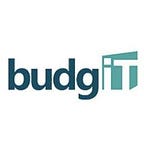Going Forward, Looking Beyond: A Reflection on BudgIT’s Expansion (II)
GHANA
Ghana is a stable country and has enjoyed deepening democratic governance, with free and fair elections over the past four election cycles. This development has strengthened the effectiveness of vital national institutions in the country. While Ghana’s growth has been relatively robust, the country still struggles with poverty, an inadequate healthcare system, and a weak business climate.
Nasurulai Abdulai, BudgIT’s Country Lead in Ghana, writes more on his experience kickstarting the BudgIT Ghana office.
Registration
We completed BudgIT Ghana registration as a nonprofit organisation within three weeks. Compared to other countries, there is a well-defined process for registration, and it is available online. The website of the Department of Ghana’s Registrar General provides a real-time update on the registration process via emails and text messages.
Work Strategy - Transparency and Accountability
Ghana has an open budgeting system where citizens can access national budgets online, so we chose a different strategy. We explored some research around the disbursement and utilisation of the COVID-19 intervention funds donated to Ghana since the discovery of the first case in March 2020. However, we found that the institutions in charge of the COVID-19 relief funds had a poor public fund management history that was largely politicised. With the 2020 presidential elections in the corner, many have speculated that the funds are siphoned to support political campaigns. The atmosphere in Ghana is tense due to the upcoming elections in December. There is very little information on the total funds donated to COVID-19 relief, making it challenging to pursue accountability.
Election Data
2020 is an election year in Ghana, as such, we will be turning our gaze on the different ways we can improve voters’ knowledge of presidential candidates and the voting process. To do this, we will analyse past and current election data, including the presidential candidates’ background information, the total number of registered voters, and voters’ registration by age, gender, and region. We will present this information in exciting visualisations and share it on our social media platforms.
SIERRA LEONE
Sierra Leone is a constitutional republic with an elected president and a unicameral legislature. Sierra Leone has a dominant unitary central government and a weak local government. The country’s economy is one of the least developed globally due to the past civil war, widespread corruption, inadequate infrastructure, and lack of education. Sixty percent of Sierra Leoneans live below the international poverty line, and it ranks 14 of the 25 poorest countries in the world. The country’s lack of transparency in managing its natural resources and budget has led to an impoverished citizenry, youth unemployment, inadequate infrastructure, corruption, and weak governance.
Alhassan Sesay, BudgITis Country Lead in Sierra Leone and Abiola Afolabi, BudgIT’s International Growth Manager walks us through the processes of establishing an office, budget access, and media engagement strategies explored in the country.
Registration
We started the registration process for BudgIT Sierra Leone as a non-government organisation in August 2020. The process requires approval from the Ministry of Planning and Economic Development (MoPED) and the Sierra Leone Association of Non-Governmental Organisation (SLANGO.) Some part of the requirements is a physical office address with at least two signboards and numerous documents. It has been over two months since we submitted the necessary documents, and we await the registration approval and certificates.
Budget Access
We did an extensive data analysis of the 2020 supplementary budget developed to minimise the effects of the COVID-19 pandemic on the populace. The data was formed into a set of infographics to reflect the budget summary while highlighting revenue sources and expenditures. We found that the government of Sierra Leone plans to fund critical sectors such as trade, mining, manufacturing, transportation, agriculture, and tourism, experiencing the largest decline due to the lockdown and less foreign direct investment. Our analysis of Supplementary Budget 2020: Saving Lives and Livelihoods have since been shared on various platforms to improve citizens’ understanding of public finance.
Social Media Engagement
Our Facebook page is active, with over 18,000 people reached and 380 engagements within the first three months. We continually share information about civic rights and responsibilities, and the analysis of the 2020 supplementary budget also increased attention on the page. We stream our live radio shows on Facebook to reach our online audience and take their questions and insights from the show.
Radio Talk Show
We began ‘BudgIT Hour’, a bi-weekly civic engagement radio show. The one-hour show airs on the community radio station, Lion Mountain. We plan to host another program on Victory Radio, which has a wider national audience, to engage local councils on governance. At the moment, we are having a series of conversations on the 2020 supplementary budget highlighting the critical capital projects and sectoral allocations.
Watch our radio shows here and here.
Institutional Engagement
We have reached out to the Ministry of Finance to offer technical support on the country’s budget. We offered to provide an in-depth analysis of the following critical sectors — Health, Education, and Agriculture. We plan to invite them to our upcoming budget analysis workshop.
To support our operations in any of these African countries, please contact info@yourbudgit.com
